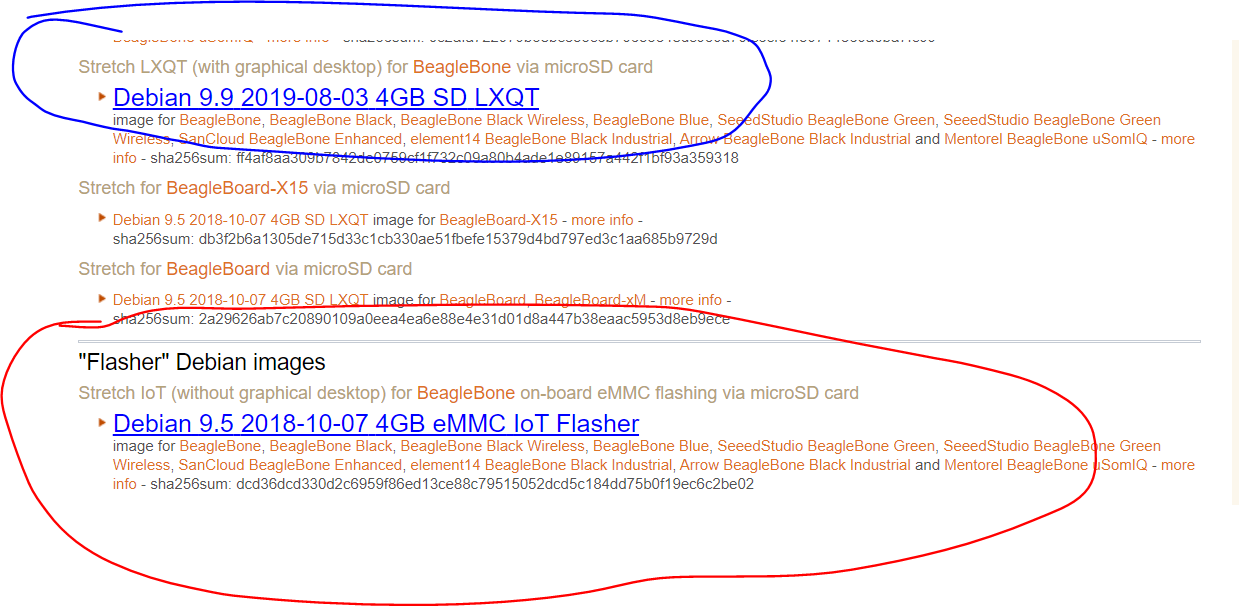i have a BBB that i bout years ago. i believe its rev c. at that time i was trying to flash it with debian but could never get it to work. i gave up put the thing away. got a soul crushing office job and havent looked at the thing sense. i want a new job/side gig and i figured i could learn ethical hacking. at this point i thought why don’t i trying running kali linux on the BBB. i put kali linux on an sd card so i could boot it and that has not been working at all. two of the user leds light up and then the device just sits there not doing anything.
My setup up is to connect an hdmi to a monitor, and hub for keyboard and mouse. im thinking because my bbb still runs Angstrom that i am having an issue running kali since kali is debian based. i have been trying to flash debian on to the bbb so that i can try booting kali that way.
i cant get the device to flash with debian. i have looked at different videos on youtube describing the proccess and nothing has worked for me.
i download the image with the gui and use win32 to burn the image. i put the sd chip in the device holding down the boot button and 3 leds turn on and the device just sits there, no flashing or knight rider pattern. i saw some tutorials that say to get into the boot folder and change the unev.txt file through the device itself and still nothing. can someone give me a hand in getting this done? or point me to a process that has worked for them?
also if you could give me some suggestions as to why kali is not booting from the sd chip that would be great.
Please tell me if this is wrong as well:
i want to use the BBB as a stand-alone computer with the latest version of debian. i want to pulg it into a monitor and have a keyboard and mouse with a GUI running debian. i can do this with angstrom but cant get the debian version of linux to flash and get this going.
i want to be able to insert the sd chip with kali and have it boot. so that i can continue to learn how to hack. then when im done with that i want to take the sd chip out and just run regular debian so that i can use the BBB to work with electronics.
i know i can use a vm on my computer which is what i am doing now but i want to do it this way sorry for being hard headed. also i apologize for this post being all over the place.


![20200213_212429[1324].jpg](/uploads/default/original/1X/366529206e5ab5c50aae73eea6f5f5577e6b9a9f.jpeg)